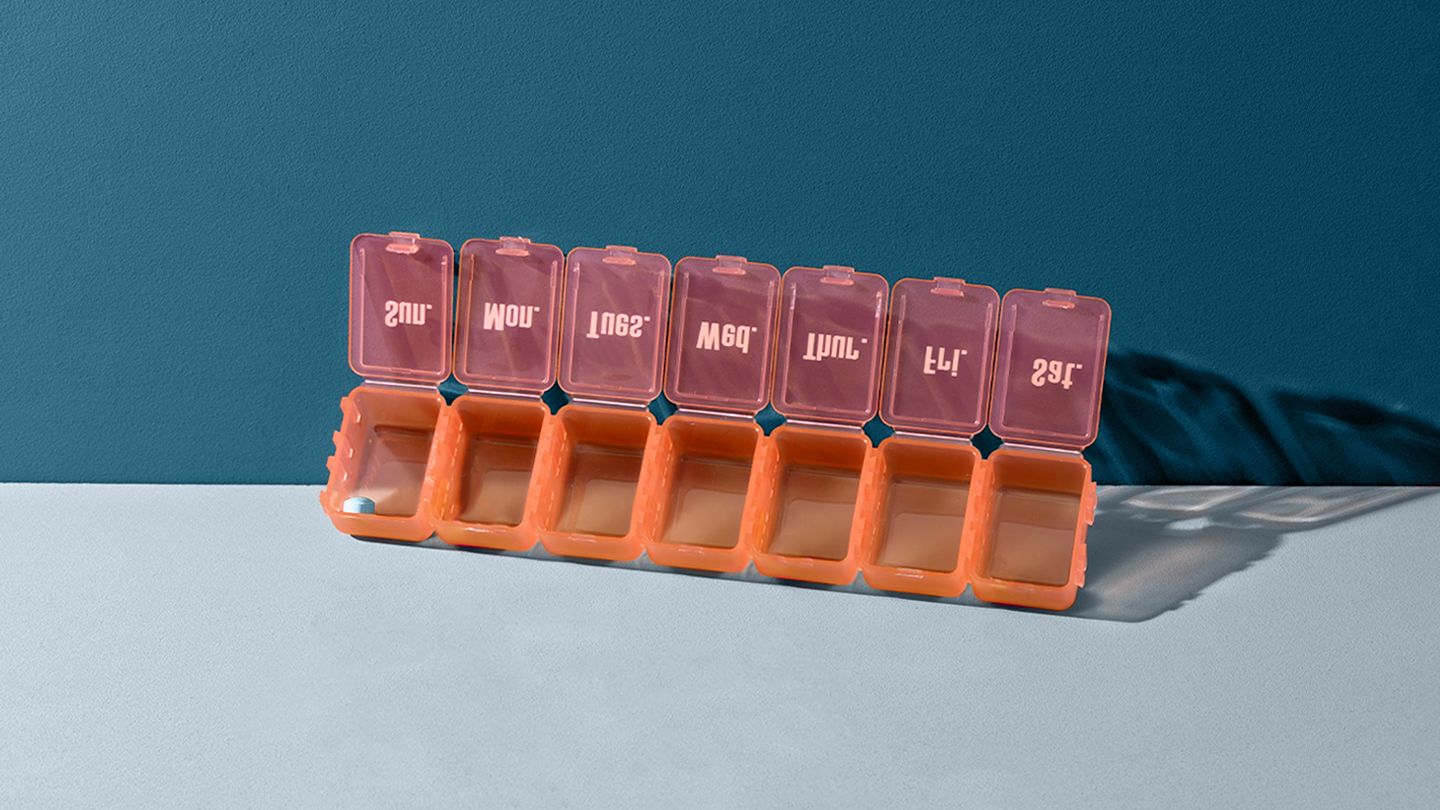Understanding the Connection Between Gluten and ADHD
Gluten is a protein found in grains such as wheat, barley, and rye. For individuals with celiac disease or non-celiac gluten sensitivity, consuming gluten can trigger an autoimmune response and lead to various health issues. While ADHD is not directly related to celiac disease, research has shown that some children with ADHD may have an underlying sensitivity to gluten, which can exacerbate their symptoms.
The Leaky Gut Theory
One of the theories that explain the connection between gluten and ADHD is the "leaky gut" hypothesis. When gluten is consumed by individuals with a sensitivity, it can cause inflammation and damage to the gut lining. This damage allows partially digested food particles and toxins to enter the bloodstream, triggering an immune response. This inflammatory response can affect the brain and contribute to the symptoms of ADHD, such as hyperactivity, impulsivity, and inattention.
Neurotransmitter Imbalance
Another possible link between gluten and ADHD involves neurotransmitters, which are chemicals that transmit signals between nerve cells in the brain. Gluten sensitivity has been associated with imbalances in neurotransmitters, particularly dopamine and serotonin. These imbalances can impact brain function and contribute to the symptoms of ADHD.
Potential Benefits of a Gluten-Free Diet for ADHD
While the scientific evidence is still emerging, many parents have reported positive changes in their children's ADHD symptoms after adopting a gluten-free diet. Here are some potential benefits that have been observed:
Improved Focus and Concentration
By eliminating gluten from the diet, some children with ADHD have experienced an improvement in their ability to focus and concentrate. This may be due to a reduction in inflammation and the restoration of a healthy gut-brain connection.
Decreased Hyperactivity and Impulsivity
Parents have reported a noticeable decrease in hyperactive and impulsive behaviors in their children after removing gluten from their diets. This could be attributed to the stabilization of neurotransmitter levels and a reduction in inflammatory responses that can contribute to these symptoms.
Improved Mood and Behavior
In addition to improvements in focus and hyperactivity, some children with ADHD have experienced positive changes in their overall mood and behavior when following a gluten-free diet. This may be due to the reduction of inflammation and the restoration of a healthy gut-brain axis, which can impact emotional regulation and behavior.
Implementing a Gluten-Free Diet for ADHD
If you're considering a gluten-free diet for your child with ADHD, it's essential to approach it with caution and under the guidance of a healthcare professional. Here are some tips to help you get started:
Seek Professional Advice
Before making any significant dietary changes, consult with a pediatrician, nutritionist, or a healthcare provider who specializes in ADHD and dietary interventions. They can help you determine if a gluten-free diet is appropriate for your child, provide guidance on implementing the diet safely, and monitor your child's progress.
Gradually Transition to a Gluten-Free Diet
Abruptly removing gluten from your child's diet can be overwhelming and may lead to resistance. Instead, gradually phase out gluten-containing foods and introduce gluten-free alternatives. This will help your child adjust to the new diet and reduce the risk of deficiencies.
Educate Yourself and Your Child
Learn about gluten-free food options, label reading, and cross-contamination risks. Involve your child in the process by educating them about gluten and its effects. This will help them understand the importance of the dietary changes and encourage their cooperation.
Create a Balanced and Nutritious Meal Plan
A gluten-free diet should not be restrictive or nutrient-deficient. Work with a nutritionist to create a balanced meal plan that includes a variety of gluten-free grains, fruits, vegetables, proteins, and healthy fats. This will ensure that your child receives the necessary nutrients for proper growth and development.
Be Mindful of Cross-Contamination
Cross-contamination is a significant concern when following a gluten-free diet. Educate yourself and your family about proper food handling, cooking utensils, and storage practices to prevent accidental exposure to gluten.
Additional Considerations and Final Thoughts
While a gluten-free diet may offer potential benefits for children with ADHD, it's essential to remember that everyone responds differently. Some children may experience significant improvements, while others may not notice a substantial change. It's crucial to have realistic expectations and not view a gluten-free diet as a cure-all solution.
Additionally, it's important to address ADHD holistically and not solely rely on dietary interventions. Consult with your healthcare provider to explore other complementary therapies, such as behavioral interventions, educational accommodations, and medication management, if necessary.
In conclusion, a gluten-free diet may be a valuable addition to the management of ADHD symptoms in some children. By understanding the connection between gluten and ADHD, implementing a well-planned and balanced gluten-free diet, and seeking professional guidance, you can support your child's overall well-being and potentially improve their quality of life.
FAQs
Is a gluten-free diet suitable for all children with ADHD?
No, a gluten-free diet may not be suitable for all children with ADHD. The effectiveness of a gluten-free diet can vary from child to child, and it's essential to consult with a healthcare professional before making significant dietary changes. Some children may see significant improvements, while others may not experience a noticeable difference.
How long does it take to see improvements after starting a gluten-free diet?
The time it takes to see improvements in ADHD symptoms after starting a gluten-free diet can vary from individual to individual. It may take several weeks or even months for the full effects to become apparent. It's important to be patient and consistent in following the diet, while also seeking professional guidance to monitor progress.
Can a gluten-free diet replace traditional ADHD medications?
A gluten-free diet should not be viewed as a replacement for traditional ADHD medications. While it may offer potential benefits for some children, it's essential to address ADHD holistically and not solely rely on dietary interventions. Consult with your healthcare provider to explore complementary therapies, including medication management, if necessary.
Is a gluten-free diet safe for children with ADHD?
A well-planned and balanced gluten-free diet can be safe for children with ADHD. However, it's crucial to work with a healthcare professional or a nutritionist to ensure that your child receives all the necessary nutrients for proper growth and development. Sudden and drastic dietary changes without proper guidance can lead to potential nutrient deficiencies.
Can a gluten-free diet help with other conditions besides ADHD?
Yes, a gluten-free diet may offer benefits for individuals with various health conditions beyond ADHD. Some of these conditions include celiac disease, non-celiac gluten sensitivity, inflammatory bowel disease (IBD), and certain autoimmune disorders. However, the effectiveness of a gluten-free diet can vary depending on the specific condition and individual circumstances.
Disclaimer: This article is for informational purposes only and does not constitute medical advice. Always consult with a healthcare professional before starting any new treatment regimen.
Related Coverage
Cooking yogurt at high temperatures can destroy probiotics. But gentler heating, prompt refrigeration, and certain preparation methods help preserve live cultures....
Explore the potential benefits of pre workout supplements for ADHD. Learn about the science behind ingredients like caffeine, L-theanine, and B-vitamins, and how to choose the right products....
Yes, primary care doctors can diagnose ADHD and prescribe medications like Adderall. Learn about discussing symptoms, treatment goals, getting a prescription....
Excessive fiddling during meals can indicate issues like ADHD or anxiety in kids. Learn techniques to curb constant fidgeting and toys with for peaceful mealtimes....
Research shows potential ADHD benefits from fasting including anti-inflammatory effects, improved gut flora, and boosted brain cell growth factors. But evidence is limited....
Research shows PMDD and ADHD commonly co-occur in women due to overlapping symptoms, brain changes, genetics, and hormone fluctuations that worsen both conditions....
Learn all about Adderall and Focalin - from how these two common ADHD stimulant medications differ in onset, duration, ingredients, side effects and more....
People with ADHD often wonder if they're good at multitasking. Learn how ADHD and multitasking interact and what works best....
ADHD symptoms like poor impulse control and high egocentrism can lead to behaviors viewed as selfish. Treatment and lifestyle changes help manage behaviors....
Concerta shortages due to increased ADHD demand leaves patients seeking options. Consider alternate stimulants, off-label meds, compounding, coupons, generics and behavior therapy until stabilized methylphenidate-ER shortage resolves....









